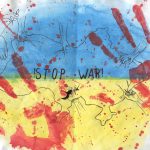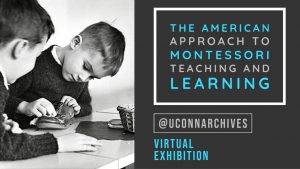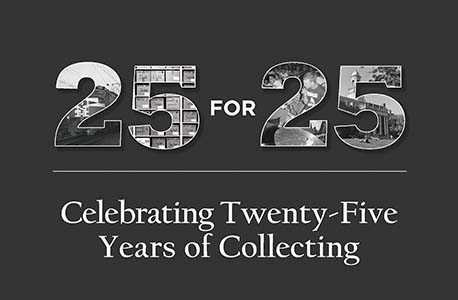Archives & Special Collections
 Continually Happening: The Artists’ Book as Construction Site
Continually Happening: The Artists’ Book as Construction Site
Richard Schimmelpfeng Gallery
Dodd Center for Human Rights
Monday - Friday, 9am to 4pm
through May, 2025
Archives & Special Collections invites viewers to consider how creative thinkers inform and expand the margins of the archive, continually retelling the stories of uncovered objects, and encouraging us to explore the possibilities yet imagined. The exhibition features recently acquired artists’ books, produced between 2015 and 2024, in which artists conduct what artist Holly Gaboriault calls “projects of imagination” engaging creatively with archival fragments that have survived alongside personal histories that remain hidden or obscured. In their work, storytelling and creative research practices are central. The work urges us to rethink the archival space as a construction site - “positioning the history and geographies of objects not as that which has happened, but as that which is continually happening.”
Homer Babbidge Library

Children Draw War, Not Flowers
Ukrainian Artists Aged 16 and Under Depict Images of War
Gallery on the Plaza
Homer Babbidge Library
On display through August 1, 2025
Reception on Tuesday, April 8, 2025
The UConn Library exhibition opening will be held on Tuesday, April 8, 4–6pm, in the Gallery on the Plaza. It will include a tour of the artwork with Ulia Gosart, Associate Professor, San Jose State University, poetry readings, and a powerful virtual reality gallery with more of the digitized works for viewing.
On February 24, 2022, the Russian Federation started a full-scale invasion of Ukraine. That fall the Cherkasy Regional Universal Scientific Library, funded by the School of Information at San Jose State University in California, held a drawing competition in 40 public regional libraries, where over 220,000 of displaced people resided. Children ages 6-18 created over 450 drawings documenting their experiences of war, trauma, and hope. The 70 drawings on display include weapons, loss, soldiers, and destroyed buildings and artifacts, as well as symbols of hope and pride. It will also be accompanied by a virtual reality gallery with more of the digitized works.
To accompany the exhibit, Archives & Special Collections will display the Mia Farrow Collection of children’s drawing from Djabal Refugee Camp in Eastern Chad near the border with Sudan where refugees settled to escape war and ethnic cleansing beginning in 2002. These drawings were collected in 2009 by prominent actress Mia Farrow and United Nations Goodwill Ambassador to conflict zones in Central Africa. The Mia Farrow Collection contains advocacy materials, digital photography, video, and maps that document the conflict and plight of refugees and the implications of their displacement.
Online Exhibits
25 for 25: Celebrating Twenty-Five Years of Collecting
Online Exhibition, UConn Archives & Special Collections
Archives & Special Collections presents 25 for 25: Celebrating Twenty-Five Years of Collecting, a virtual, year-long exhibition celebrating collections and collecting. 2020 marks the 25th anniversary of the dedication of the Dodd Center for Human Rights, which brought together the collections and practices of the University’s Historical Manuscripts & Archives and Special Collections departments for the first time. Over the course of a year, Archives & Special Collections staff will explore 25 objects selected from the collections, engaging with and reflecting on the meaning of these objects and the activity of collecting over time. Through these objects, Archives & Special Collections celebrates the act of historical preservation and the recognition that collections constantly evolve, grow, and expand so that future educators, students, researchers, and learners may be inspired and informed by the objects within.
 The American Approach to Montessori Teaching and Learning
The American Approach to Montessori Teaching and Learning
Online Exhibition, UConn Archives & Special Collections
The Montessori method of education was first introduced to the United States in the early 1900s yet quickly fell out of favor with American educators. Widespread American interest in Montessori did not return until the 1950s, thanks in large part to teacher Nancy McCormick Rambusch. Rambusch founded the American Montessori Society in 1960, which sought to promote the Montessori method in the United States. AMS succeeded in reviving the Montessori method in the United States and gaining recognition for it as a valid educational system. This exhibit explores the origins of the Montessori movement in the United States and the Americanization of the Montessori method. It is comprised of materials from the American Montessori Society Records, which were donated to the UConn Archives in 2006 and digitized beginning in 2016.
 Homefront: Connecticut Businesses in World War II
Homefront: Connecticut Businesses in World War II
Online Exhibition, UConn Archives & Special Collections
The outbreak of World War II dramatically changed Connecticut businesses. Long a vibrant part of New England industry, local firms switched from making clocks and wool coats to mass producing artillery cartridges and Army pea-coats. Selections from the Connecticut business collections held by the University of Connecticut’s Archives & Special Collections paint a detailed portrait of this remarkable moment in history through the lives of the people who lived it.
